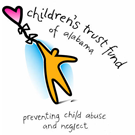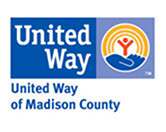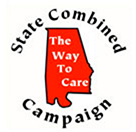Study shows positive traits and psychological strengths provide key resource for youth recovering from trauma
Written by Sherry Hamby, with assistance from Elizabeth Taylor, Kimberly Mitchell, Lisa Jones, and Chris Newlin
Huntsville, AL – The National Children’s Advocacy Center partnered with Life Paths Research Center and the University of New Hampshire to identify and study the psychological strengths that help youth recover from victimization and other adversities. This project was made possible by the National Institute of Justice.
Promoting Resilience in Youth Who Have Experienced Adversity
With funding provided by the National Institute of Justice, the National Children’s Advocacy Center recently partnered with Life Paths Research Center (in Sewanee, TN) and the University of New Hampshire to identify the psychosocial strengths that most help youth who are recovering from victimization and other adversities. The project involved focus groups and interviews with adolescents and caregivers, followed by a survey of over 400 youth ages 10 to 21 (average age 16). These were vulnerable young people, with about 9 in 10 (89.3%) reporting at least one victimization, and virtually all of them reporting some form of adversity, such as death of a loved one.
However, despite these high burdens of adversity, adolescents, parents, teachers, and coaches told many stories of overcoming trauma, and these stories often highlighted strengths that have been neglected by researchers, therapists, and advocates. For example, many people talked about the importance of being able to cheer themselves up, with humor or other methods, and get back into a good mood, an ability we call “recovering positive affect.” Many young people talked about being motivated to overcome challenges in order to make loved ones or inspiring teachers or coaches proud, an idea we call “relational motivation.” They also spoked about the importance of feeling like they mattered to family and others, and the value of feeling a sense of connectedness to peer groups, such as sports teams and community organizations. All of these strengths—and many others—are important to well-being. In fact, strengths mattered more to youth’s current level of functioning than their trauma history, despite the high levels of victimization in this sample.
Notably, there is one strength that is perhaps more important than all the others, and that is a sense of purpose (and many other strengths may be important because they help youth develop a sense of purpose). A sense of purpose is about believing that you can make a positive difference in the world and that you are working towards something. It is one of the main forms of meaning making, which is about connecting to something larger than yourself. Good grades, for example, are not just important in and of themselves, they are important—as the youth told us—because they are the keys to a brighter future and a way to make your loved ones feel proud of you.
There are many ways to help young people develop a sense of purpose. Autobiographical storytelling exercises—often called “narrative”—are some of the best and most evidence-based. Although many therapists are familiar with trauma-focused cognitive behavioral therapy (TF-CBT), which includes preparing a narrative about trauma, there are many other forms of narrative. Research in positive psychology and related fields has shown the power of writing about one’s values, key turning points in one’s life, or other people or events that helped them become who they are. Another evidence-based therapeutic strategy is motivational interviewing. Although this technique has mostly been used with adults, it could be incorporated into work with adolescents and families. In one common form, motivational interviewing is used as an “adjunct” at the beginning of therapy to help clients identify their reasons for seeking help and to create a strong therapeutic alliance for working together on the client’s goals. People like these strengths-based approaches and interventions that focus on helping them thrive. No one wants to be defined by symptoms and diagnoses alone. We need to better understand what helps young people, so that we can organize our services to best help them reach their potential.
December 2018
This project was supported by Award No. 2015-R2-CX-0004, awarded by the National Institute of Justice, Office of Justice Programs, U.S. Department of Justice. The opinions, findings, and conclusions or recommendations expressed in this exhibition are those of the authors and do not necessarily reflect those of the Department of Justice.










